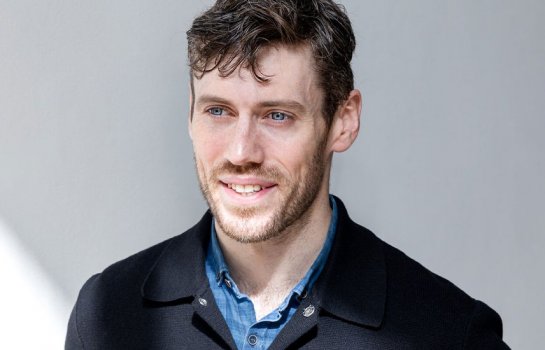Bernard Fanning, singer/songwriter
I just love that process of making an album, making a collection of songs ...
It’s crazy to think that Bernard Fanning has been rocking our ears for more than two decades. Yep, that’s right, Powderfinger’s Double Allergic (remember ‘Pick You Up‘?) was released in 1996. Those 20 years have seen Bernard sooth our souls with some incredible lyrics and vocals, from heartfelt ballads to rock anthems and everything else in between. The Brisbane-born-and-bred musician has just released his latest solo album Civil Dusk, which takes listeners on a journey through the decades, exploring the idea of the decisions we make over the years and their consequences. Ahead of his national tour of intimate shows (including two sold-out nights at The Tivoli), we chatted with Bernard to discuss flamenco claps, album creation and the musical magic of Prince.
Congratulations on the release of Civil Dusk! How long was this album in the works?
It was a year and a half, I guess, nearly two years by the time all the writing happened and it finally came out. We finished around Easter this year, so there has just been a bit of time waiting to get it all organised for release. And now, here it is.
I heard you used a few unconventional instruments in the recording of the album – spoons and flamenco dancers?
*Laughs* Yes, just a few percussion things that we did! A couple of friends of mine that are in a flamenco troupe were in town. They came in and did some claps, called palmas in the flamenco world, and there were some other fun things like that that we did. Generally the instrumentation is pretty traditional acoustic rock, but it’s always fun adding a few different things in there! We have a little section in the studio that has about five or six synthesisers in it that we call ‘The Dark Side of the Room’ in honour of Pink Floyd, so it was always fun sitting there and just noodling around and seeing if we could come up with a new sound.
Do you have a personal favourite track on the album, one that means a lot to you?
It changes all the time – that kind of happens with songs. You have your favourite child for a certain period and then it changes. I would say at the moment my favourite is probably ‘Rush of Blood’, which is just a really mellow piano ballad. We put a lot of work into the way that we’ve sequenced the record – we’ve treated it like a vinyl record where you actually stop halfway and flip it over. So ‘Rush of Blood’ is like the end of the first side. The main theme of the record was about making decisions and the consequences of those decisions. I particularly looked at how they roll through years and decades, as well as trying to investigate the idea of memory and the way that you remember things, and whether that is real or just how you want to see it. It was a fun and interesting concept for me to chase those ideas. They didn’t really emerge until I had already written half a dozen songs – I didn’t set out to chase those ideas, it just unfolded that way.
That theme comes across in the ‘Wasting Time’ film clip – it features some nostalgic Bernard and Powderfinger footage, not to mention its distinct 70s vibe. Was it fun taking a trip down memory lane to create it?
Yeah it was fun! Pretty much everything that featured in that video is obsolete now as far as technology goes, so it’s kind of a riff on that idea. I went to the shoot and watched Damon Herriman in action, and he’s a fantastic actor. It’s always great to witness stuff like that. We are just in the process of getting a sequel together for that one, we don’t know whether it’s going to happen or not, but if it does it will continue the theme for another track on the album.
I can’t believe it’s been more than ten years since Tea & Sympathy was released. Has your approach to creating an album changed much in the past decade?
I don’t think it has changed that much … I don’t think even my approach to writing music changed from writing for Powderfinger and what I do now. It was always a matter of just generating an idea and getting together with the other guys in the band – in the case of Powderfinger – to contribute to finishing that. It’s a similar approach now, it’s just that I generally do it by myself or with Nick DiDia, who produced the album, and my own band. For me it’s just about communicating an idea clearly and making it something that’s coherent and enjoyable. It doesn’t always have to be enjoyable in the sense that it sounds pleasant, it can be totally confronting – not that any of the songs on Civil Dusk are really like that. The thing about making a record is there are so many side roads that you go down on the way to what people actually hear – you’ve got all these other things that inform what the final ‘product’ will be. I just love that process of making an album, making a collection of songs. I love the process of writing an individual song as well, but then piecing stuff together and sequencing it so that it presents in its particular way to tell a story. Most people are aware of it just from the shuffle function on their iPods and from making mix tapes, but if you listen to an album in a different order than it was sequenced, it does present really differently. So I would encourage people to listen to Civil Dusk from front to back – I know that’s asking a lot these days because most people don’t get past one song at a time by an artist.
You’ll be embarking on a national tour in October/November – do you have any tour rituals you can share with us?
Not really! We were actually talking about this the other day when we did a show – we used to always have a shot of scotch or something before we played and somehow that’s just fallen by the wayside. I think we might have to reignite that one! But not really, we usually just sit around and sing a couple of songs in the band room and just get organised. It’s a pretty relaxed environment these days, the shows are much smaller than they used to be in the Powderfinger world, so it’s a bit more personal than when we did those arena shows.
Do you prefer the more personal shows to those big arena performances?
Yeah, I do now. They both have their advantages – it’s great playing in front of a massive audience, but the environment is totally different. I end up crapping on quite a lot on stage now actually, which is different to what I was like with Powderfinger! It’s much more relaxed, not quite as showy.
You’ve got two shows lined up at The Tivoli, which sold out pretty damn quick. What is your favourite thing about playing in your hometown?
There’s friends and family there obviously, and The Tivoli is – I don’t know how many shows I have played there, it would be dozens – it’s very familiar to me. I love playing there, and people love going there. There’s always a special electricity about shows at home. There always has been, even from the early days.
Is there anything in particular you’re looking forward to doing in Brisbane while you’re here?
I will just be having a cup of tea with my mum, that’s the most important thing to do when I’m there.
If you could collaborate with anyone, living or dead, who would you pick?
I will say … Prince. Well, it could be David Bowie just as easily.
You can have both!
Oh good, I’ll take both! I saw Prince play at the State Theatre in Sydney a few months before he died, which was awesome. Seeing somebody with that range of music, and he just presented it on a piano. It was just him and a piano … it was just really incredible to see somebody that was that good at communicating ideas, even presented in a different way. He was a notoriously eccentric kind of person but he walked out on stage and he just had everybody from the first second. He had everyone in the room just wanting him to be great. And he was. It’s a rare thing – somebody that can be a pioneer like that for such a long time. He was just a strident individual, he really stood up for himself, espeically against the big-business side of the music industry. He was very inspiring.
What is your idea of complete happiness?
That’s a hard one, isn’t it? That could change every day as well. It could easily be drinking beer and watching cricket, but it could just as easily be hanging out with my family, playing with my kids. I love watching them in action, seeing their fearlessness and their joy at being alive. Unencumbered by all of the adult worries that we all have.
And finally finish this sentence, only a Brisbane local would know that … Toowong Village used to be a sawmill. Patterson’s sawmill, next to Toowong train station.
Bernard Fanning’s album Civil Dusk is out now, and he has already announced a sister album, Brutal Dawn, to be released early 2017. Tickets to his two shows at The Tivoli have already sold out, check Bernard’s website for other show locations and announcements.
Fancy a little Powderfinger nostalgia? Your wish is our command …


